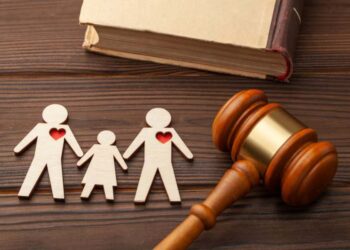Bankruptcy can be a way out for people overwhelmed by debt and it raises important questions about various loans, including online ones. Let’s look at how bankruptcy deals with online loans, an issue that’s getting more attention in today’s digital world.
We’ll look at key aspects such as dischargeability of debts and repayment plans, focusing on what borrowers need to know when facing financial challenges. Our goal is to provide insightful and practical information for those considering bankruptcy as a legal solution to their debt problems.
Understanding Online Loans
Online loans have emerged as a popular and convenient option for borrowers seeking financial assistance quickly and without the traditional complexities of bank loans. These digital loans, which can be applied for and received entirely online, range from personal loans to specific types like cash advance loans.
A notable example in this category is the cash advance loan CreditNinja provides to borrowers which is designed for immediate financial relief with a straightforward online application process. While these loans offer quick access to funds, they also come with terms and conditions that borrowers must understand, especially when facing financial difficulties that might lead to bankruptcy.
Bankruptcy Basics
Bankruptcy serves as a legal recourse for individuals overwhelmed by debt, offering a structured way to address financial obligations under the protection of federal law. There are two primary chapters under which individuals can file: Chapter 7 and Chapter 13, each with distinct approaches and implications for debts, including those from online loans.
- Chapter 7 Bankruptcy – Chapter 7 bankruptcy applies to people who can’t afford to pay their debts. It is also known as liquidation bankruptcy. Here, a trustee sells off your non-exempt assets to pay back what you owe. Unfortunately, not every debt can be wiped out in Chapter 7. However, many unsecured debts, like some online loans, might be cleared. This chapter is typically quicker, concluding within a few months, and can provide a relatively swift resolution to overwhelming debt.
- Chapter 13 Bankruptcy – Contrasting with Chapter 7, Chapter 13 is more about reorganization. Chapter 13 bankruptcy is for people with a steady income who can pay back some of their debts. Here, you come up with a plan to make monthly payments over three to five years. This can be helpful for people with online loans because it lets them rearrange their debts and maybe even lower the total amount they have to pay back.
Choosing between Chapter 7 and Chapter 13 bankruptcy can change how your online loans are handled. This decision can affect your finances right now and in the long run.
Dischargeability of Online Loans
A big thing to think about when filing for bankruptcy is whether you can get rid of your debts, like online loans. This is called “dischargeability” and it covers the debt that can be wiped out by bankruptcy.
Online Loans in Chapter 7 Bankruptcy
You can often get rid of unsecured debts like online loans under a Chapter 7 bankruptcy. No need to pay these debts but there are some exceptions. For instance, if you dishonestly got the loan or if it’s a kind of debt that you can’t erase under the bankruptcy law.
Online Loans in Chapter 13 Bankruptcy
The situation is somewhat different under Chapter 13. Your online loans might be part of your repayment plan. You will be obligated to make payments over time. How much you need to settle depends on several factors:
- Your current earnings
- The sum of the debt
- Whether the debt is secured or unsecured
- Other details agreed upon in court
Once you finish the repayment plan successfully, you might not have to pay the rest of your online loans. But remember, not every online loan is handled the same in bankruptcy. The specific circumstances of the borrower can still come into play.
You get a payment plan that the court approves to manage your debts more easily. Usually, secured debts get paid first in your plan, so online loans might get a smaller part of your monthly payment. Still, this can be a big help if you’re struggling with online loans that have high interest rates. This also gives you a chance to get your finances back on track over time.
Legal Implications for Borrowers
For borrowers of online loans considering bankruptcy, understanding the legal implications is essential. The treatment of online loans in bankruptcy not only affects a borrower’s current financial situation but also has long-term consequences.
Role of Bankruptcy Courts
The court looks closely at your online loans when you file for bankruptcy. They check if the loans are legitimate, why you took them, and if you can pay them back. If the court thinks you got a loan dishonestly or unfairly, you might still have to pay it back even after bankruptcy.
Real-Life Court Decisions
Court decisions on online loans in bankruptcy cases can vary. For instance, the court might let you off from paying an online loan if it’s too hard for you to pay it back. But, if you took the loan just before filing for bankruptcy, the court will take a closer look to see if you were planning to pay it back or not.
Navigating Financial Challenges
For borrowers with online loans facing the prospect of bankruptcy, it is important to navigate their financial challenges with informed decision-making. Understanding the options and strategies available can make a significant difference in managing the impact of bankruptcy on their lives.
Options Outside of Bankruptcy
Before opting for bankruptcy, borrowers should explore alternative solutions for managing their online loans. This may include debt consolidation, negotiating with lenders for more favorable repayment terms, or seeking financial counseling. Such steps can sometimes provide a viable path to financial stability without the need for bankruptcy.
Seeking Professional Advice
Navigating the complexities of bankruptcy, especially with online loans, often requires professional guidance and caution. Missteps or misunderstandings about the bankruptcy process and the treatment of online loans can lead to unfavorable outcomes.
You must be made aware of how this process will affect your debts and how it could change your credit score for a long time. Seeking professional legal advice is often crucial in these scenarios, as an experienced attorney can provide guidance tailored to the individual’s specific circumstances. They can help evaluate the pros and cons of filing for bankruptcy and the best course of action regarding their online loans.
Photo by Stephen Phillips from Unsplash
Conclusion
Going through the process of bankruptcy may bring immediate financial relief but also shapes one’s long-term financial health. While bankruptcy can offer a path out of overwhelming debt, it demands thoughtful decision-making, especially regarding online loans.
Borrowers are encouraged to seek professional advice and consider all available options. They have to approach bankruptcy with a clear understanding of its impact on their financial future. With the right guidance, they can navigate this challenging financial landscape with greater confidence and a clearer vision for their path ahead.










